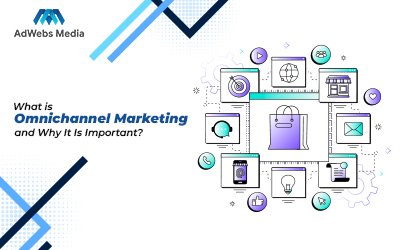Why Your Website is Not Ranking on Google?
Join us as we set out on a quest to clarify the causes and uncover workable remedies to launch your website from the background into the foreground it deserves.
Understanding the Basics of SEO
Search Engine Optimization (SEO) is the bedrock upon which the success of your website’s online visibility rests. SEO encompasses a multifaceted approach to improve your website’s chances of ranking higher in search engine results pages (SERPs). Therefore you must follow the best practices for SEO for your website. While discussing that further here are the three pillars of SEO are:
On-Page Optimization
This involves optimizing various elements on your web pages to make them more appealing to both users and search engines. It includes aspects such as keyword optimization, high-quality content creation, meta tags, and internal linking.
Off-Page Optimization
Off-page optimization focuses on building your website’s authority and reputation through external factors. This primarily revolves around link building, where the quantity and quality of backlinks play a pivotal role.
Technical SEO
The technical aspects of your website, including its structure, speed, mobile-friendliness, and security, significantly influence your rankings. A technically sound website ensures a seamless user experience, which search engines value.
Top 6 Issues Why Your Website Not Ranking On Google?
Commence your search for the ideal SEO company by methodically exploring the array of options available to you.
Technical SEO Issues
Slow Page Speed
Page speed is not just a user experience concern but a critical SEO factor. Slow-loading pages can lead to high bounce rates and lower rankings. Utilize tools like Google PageSpeed Insights to identify bottlenecks and optimize your site’s speed.
Mobile Friendliness
Google’s emphasis on mobile-first indexing means your website must be responsive and mobile-friendly. Ensure that your design adjusts seamlessly across various screen sizes for a consistent user experience.
Indexing Problems
Indexing allows search engines to understand and rank your content. Check your website’s robots.txt file to ensure it’s not blocking essential pages, and verify that your XML sitemap is accurate and up to date.
HTTPS and Security
Google considers security a top priority. Transition your website to HTTPS by obtaining an SSL certificate, demonstrating your commitment to user safety, and positively impacting your rankings.
On-Page Optimization Shortcomings
Lack of Relevant and High-Quality Content
Thin or irrelevant content won’t resonate with users or search engines. Focus on crafting comprehensive, well-researched content that addresses user intent and provides value. And the most important is to have pillar pages on your website. Create the pillar page content to rank your website higher.
Improper Keyword Usage
First of all, when we talk about keywords for your website it is important that you must know how to find relevant keywords for your website and then use them in your website content. Keyword stuffing can lead to penalties. Instead, incorporate keywords naturally into your content, focusing on providing information that genuinely answers user queries.
Inadequate Title Tags and Meta Descriptions
Title tags and meta descriptions are your website’s first impression in search results. Craft compelling and descriptive tags that accurately represent your content and encourage clicks. Other than this you must have a checklist with you for On-page SEO Audit that helps you check and optimize your On-page SEO from time to time.
Off-Page Optimization Challenges
Inadequate Backlink Profile
Quality trumps quantity when it comes to backlinks. Focus on earning relevant, authoritative backlinks from reputable sources in your industry to boost your website’s credibility.
Lack of Social Signals
Social media activity indirectly influences SEO. Engage with your audience on social platforms, share valuable content, and encourage social sharing to improve your website’s visibility.
User Experience (UX) and Engagement Factors
High Bounce Rates and Low Dwell Time
High bounce rates and short dwell times signal to search engines that users aren’t finding your content engaging or valuable. Create captivating, well-structured content that encourages users to explore further.
Mobile Usability
Mobile devices are a primary means of accessing the internet. Prioritize responsive design and consider implementing Accelerated Mobile Pages (AMP) to ensure seamless mobile usability.
Content Promotion and Outreach
Importance of Content Distribution
Even the best content needs promotion. Share your articles on social media, leverage email newsletters, and explore content syndication to extend your content’s reach. What you must focus on for this is social media marketing and when needed email marketing to reach your targeted audience.
Building Relationships for Link Building
Forge genuine relationships within your industry. Collaborate with influencers, engage in guest posting, and participate in online communities to establish a strong network and earn backlinks.
Analytics and Continuous Improvement
Importance of Regular SEO Audits
Periodically audit your website’s SEO health using tools like Google Analytics and Google Search Console. Identify areas for improvement and address technical issues promptly.
Tracking Progress and Adjusting Strategies
Monitor keyword rankings, organic traffic, and user engagement over time. Analyze the data to refine your strategies, adapting to evolving search engine algorithms and user behaviors.
Conclusion
Achieving desirable Google rankings requires a holistic approach that encompasses technical prowess, engaging content, authoritative backlinks, and an unwavering commitment to user experience. While the journey might be challenging, understanding the intricacies of SEO and diligently implementing the recommended solutions will yield positive results over time. Remember that SEO is an ongoing process, and as you continuously refine your strategies, you’ll gradually witness your website ascending the ranks of Google’s search results, attracting more organic traffic and establishing a stronger online presence.
What is Omnichannel Marketing and Why It Is Important?
Gone are the days when businesses could rely solely on a single marketing channel to reach their target…
Digital Marketing For Dentists – Top 10 Digital Marketing Strategies for Dental Rooms
In today’s digital age, a strong online presence is crucial for any business, including dental practices…
Everything you need to know about Inbound Marketing vs Outbound Marketing
In the world of marketing, two major strategies have emerged as dominant forces: inbound marketing…






0 Comments